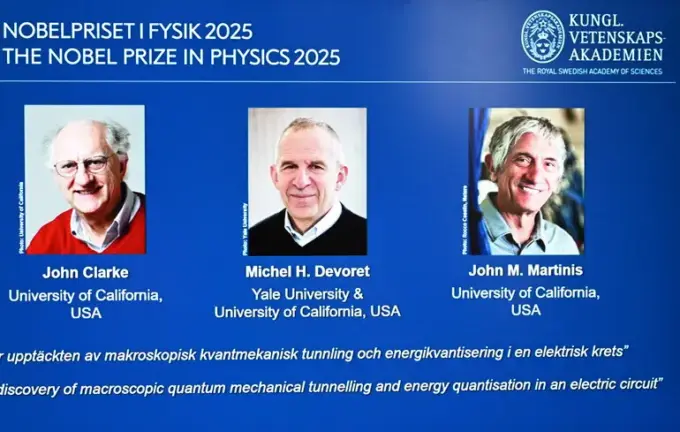Quantum revolution is in the hands of the youth”: Nobel laureate John Martini’s statement

In today’s rapidly advancing world of science and technology, the quantum revolution is gaining momentum thanks to groundbreaking work and discoveries by scientists like Nobel laureate in physics John Martini.
The renowned physicist believes that the next generation of researchers has the potential to turn this revolution into reality, opening new horizons in quantum technologies.
During an interview with Euronews, he discussed the current state of research, industry challenges, and the role of young scientists in shaping future innovations.
Martini, a pioneer in quantum computing and leader of Google’s famous “quantum supremacy” experiment, highlights that quantum computers have become significantly more capable, able to perform calculations in seconds that would take classical supercomputers thousands of years.
He notes that the journey to this level of development has been long and arduous, with roots dating back to the 1980s.
“Today, we can create quantum computers powerful enough to perform complex calculations, run simple algorithms, and understand how they work,” he states.
The scientist emphasizes that youth play a crucial role in this technological revolution: quantum technologies demand close collaboration among physicists, engineers, programmers, and material scientists.
However, a major obstacle remains the lack of openness within the private sector, which dominates current research and development efforts, potentially slowing progress.
“Companies are often reluctant to share knowledge, which can hinder advancement.
Balancing corporate interests with scientific research is a challenging but necessary task,” Martini concludes.
Despite difficulties, he remains optimistic about the industry’s future: “Quantum technology is now mature enough, and although experienced individuals find it hard to start startups, there are immense opportunities for youth.
Today’s young researchers can join research teams, develop algorithms, and create new materials, making a significant contribution to science.” The future of quantum technology heavily depends on collaboration between universities, industry, and governments.
Scientists underline that young, energetic, and bold minds are capable of making this leap and turning quantum breakthroughs into tangible realities—potentially transforming medicine, energy, and cybersecurity sectors.
Together with colleagues John Clark and Michel DeVore, Martini received this year’s Nobel Prize in Physics for their discovery demonstrating quantum effects such as tunneling and quantized energy levels in macroscopic systems, confirming that quantum phenomena can occur at large scales when particles are in a shared quantum state.
Recent research has also uncovered active flat electronic zones in chromium-based superconductors, a rare phenomenon previously only predicted theoretically.
These electronic states, linked to the unique lattice structure of the material, actively influence its superconducting and magnetic properties, paving the way for the development of next-generation quantum materials and electronics.

